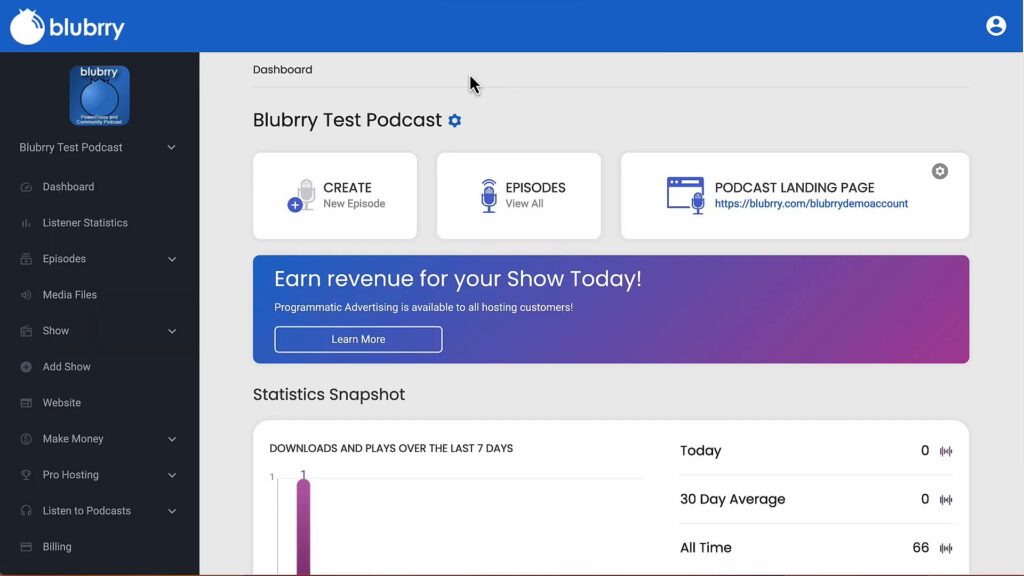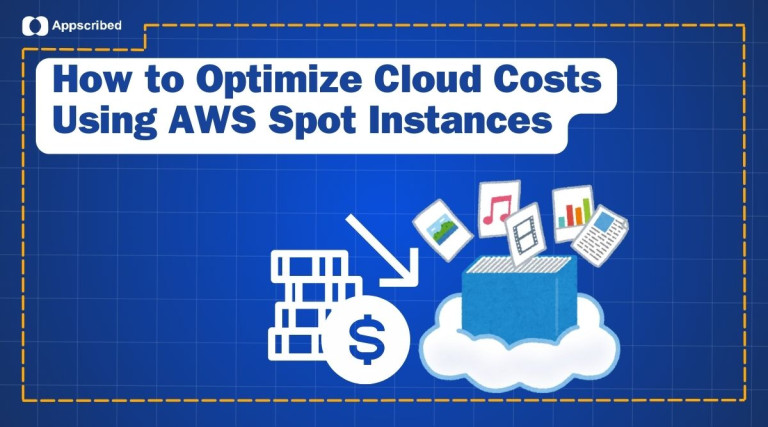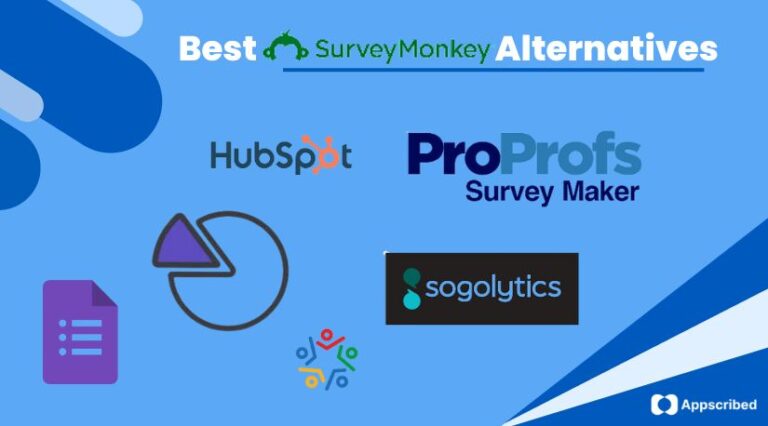Podcasting platforms are websites and apps that allow podcasters to host and distribute their podcasts. Podcasters can use these platforms to upload their episodes, create RSS feeds, and track their analytics.
Podcasting is a great way to reach a large audience with your message. It’s also a relatively inexpensive way to produce and distribute content. All you need is a microphone, a computer, and a podcasting platform.
Podcasting is an exciting way to connect with your audience, but finding the right hosting platform can be tough. With a staggering increase in podcast listenership, picking a reliable hosting provider greatly influences your success. In 2024, there are over 500+ million podcast listeners worldwide.
In this blog, we will help identify the best podcast hosting platforms that can get you started for free on your podcasting journey.
Top Podcast Hosting Platforms – A Quick Overview
If you’re interested in podcasting, it’s crucial to understand the differences between the various hosting platforms. Here’s a quick overview of some popular ones we will cover in details in this blog:
| Platform | User base | Key Feature |
| SoundCloud | 76 million | Excellent for hosting and distributing podcasts. |
| Anchor | 2 million | Integrated with Spotify, offering diverse features. |
| Buzzsprout | 500,000 | Offers detailed analytics and marketing tools. |
| Podbean | 280,000 | Ability to create a unique podcast website. |
| Libsyn | 150,000 | Provides robust publishing tools for podcasters. |
| Spreaker | 100,000 | Offers a range of podcasting tools for beginners and pros. |
| Acast | 80,000 | Provides monetization options for podcasters. |
| Castbox | 70,000 | All-in-one solution for podcasting needs. |
| Simplecast | 30,000 | Record, edit, and publish podcasts with various set of features. |
| RedCircle | 25,000 | Offers an easy-to-use interface. |
| Castos | 20,000 | Host your podcast privately and securely. |
| Audioboom | 15,000 | Offers monetization options and dynamic ad insertion. |
| Alitu | 10,000 | Offers AI-powered insights and various editing tools. |
| Blubrry | 10,000 | Offers in-depth podcast statistics and analytics |
Each of these platforms has unique features and capabilities, so it’s essential to choose the one that aligns best with your goals and needs as a podcaster.
Let’s look at each of these platforms in details.
Soundcloud
User Base: 76 million
Rating: 4.2/5

Soundcloud is one of the best free podcast hosting platforms, with over 76 million users. It offers an excellent solution for hosting and distributing podcasts. Soundcloud provides a user-friendly interface that allows creators to upload and share their episodes easily.
With its large user base, it offers great potential for podcasters to reach a wide audience. Whether you are new to podcasting or an experienced creator, Soundcloud is a platform worth considering for your podcast hosting needs.
Let us look at some its pros and cons:
| Pros | Cons |
|---|---|
| 1. Easy to use interface. | 1. Limited analytics. |
| 2. Social media integration. | 2. Limited monetization options. |
| 3. Good for musicians and artists. | 3. Not as podcast-centric as other platforms. |
| 4. Free plan available. | 4. Limited storage for free accounts. |
Anchor
User Base: 2 million
Rating: 4.5/5

Anchor is another top choice when it comes to podcast hosting platforms. With its user-friendly interface and a wide range of features, Anchor makes it easy for beginners to start their podcasting journey.
It offers free hosting, distribution to all major podcast platforms, and tools for editing and monetization. Additionally, Anchor provides analytics to track your podcast’s performance and audience growth.
With Anchor, you can easily record and edit episodes directly from your phone or computer, making the entire process convenient and hassle-free. Whether you’re new to podcasting or an experienced podcaster looking for a free hosting solution, Anchor is definitely worth checking out.
Let us look at some its pros and cons:
| Pros | Cons |
|---|---|
| 1. Free hosting with no storage limits. | 1. Limited customization options. |
| 2. Easy to use, especially for beginners. | 2. Some advanced features may be lacking. |
| 3. Integrated monetization options. | 3. Ownership and control concerns for some users. |
| 4. Distribution to popular podcast platforms. | 4. Limited support options. |
Buzzsprout
User Base: 500,000
Rating: 4.7/5

With its user-friendly interface and wide range of features, Buzzsprout makes it easy for beginners to start their podcasting journey.
Whether you’re recording episodes from your computer or on-the-go with your phone, Buzzsprout offers flexible upload options. It also provides detailed analytics that help you track your podcast’s performance and understand your audience better.
Additionally, Buzzsprout allows you to optimize your episodes for search engines like Google and Apple Podcasts, making it easier for listeners to find and subscribe to your show. So if you’re looking for a reliable and feature-rich platform without breaking the bank, give Buzzsprout a try!
Let us look at some its pros and cons:
| Pros | Cons |
|---|---|
| 1. User-friendly interface. | 1. Limited storage on free plan. |
| 2. Great analytics and statistics. | 2. More expensive than some other platforms. |
| 3. Easy to migrate from other platforms. | 3. Limited monetization options. |
| 4. Good customer support. |
Podbean
User Base: 280,000
Rating: 4.8/5

With over 10 years of experience, Podbean has become one of the best overall hosting platforms in the industry.
It hosts over half a million podcasts, making it a reliable and trusted choice for content creators. One unique feature of Podbean is that it allows users to create a podcast website, similar to Buzzsprout.
This can be a great way to establish your brand and attract more listeners to your podcast. Whether you’re just starting out or looking for a new hosting platform, Podbean offers an easy-to-use interface and robust features that will help elevate your podcasting journey.
Let us look at some its pros and cons:
| Pros | Cons |
|---|---|
| 1. Affordable pricing plans. | 1. Limited customization options for websites. |
| 2. Comprehensive analytics and statistics. | 2. Some users find the interface less intuitive. |
| 3. Integrated monetization options. | 3. Not as beginner-friendly as some other platforms. |
| 4. Dedicated app for podcasters and listeners. |
Libsyn
User Base: 150,000
Rating: 4.9/5

With over 15 years of experience in the industry, Libsyn has established itself as one of the best choices for podcasters.
It provides unlimited audio storage and bandwidth, allowing you to upload and distribute your episodes without worrying about limitations. Libsyn also offers advanced analytics, making it easier for you to track your podcast’s performance and audience engagement.
Whether you are just starting out or have an existing podcast, Libsyn can be a great option to host and promote your content effectively.
Let us look at some its pros and cons:
| Pros | Cons |
|---|---|
| 1. Established and reliable platform. | 1. Interface may feel less modern compared to newer platforms. |
| 2. Robust statistics and analytics. | 2. Storage limits on lower-tier plans. |
| 3. Multiple pricing plans for various needs. | 3. Additional charges for features like website hosting. |
| 4. Reliable customer support. | 4. Some users may find it less intuitive. |
Spreaker
User Base: 100,000
Rating: 4.3/5

Spreaker is another top free podcast hosting platform that offers a range of features for podcasters. With its user-friendly interface, podcasters can easily upload and distribute their content to various platforms, including Apple Podcasts and Spotify.
Spreaker also provides analytics tools to track audience engagement and determine the reach of your podcasts. Furthermore, it allows you to monetize your content through advertising or listener support.
With Spreaker’s comprehensive set of features and ease of use, it’s definitely a platform worth considering for hosting your podcasts in 2023.
Let us look at some its pros and cons:
| Pros | Cons |
|---|---|
| 1. Live broadcasting capabilities. | 1. Limited storage on lower-tier plans. |
| 2. Integrated monetization options. | 2. Limited customization options. |
| 3. User-friendly interface. | 3. Limited in terms of podcast website features. |
| 4. Good analytics. |
Acast
User Base: 80,000
Rating: 4.6/5

With Acast, you can easily upload and distribute your podcasts to major platforms like Apple Podcasts, Spotify, and Google Podcasts.
The platform also provides analytics tools that allow you to track the performance of your episodes and audience engagement. Additionally, Acast offers monetization options through advertising partnerships, making it an attractive choice for podcasters looking to generate income from their content.
Let us look at some its pros and cons:
| Pros | Cons |
|---|---|
| 1. Advanced analytics and insights. | 1. Not suitable for beginners. |
| 2. Monetization opportunities. | 2. Approval process for joining Acast network. |
| 3. Distribution on popular platforms. | 3. Limited control for free users. |
| 4. Access to Acast’s podcasting community. |
Castbox
User Base: 70,000
Rating: 4.4/5

With millions of podcasts available on its platform, Castbox offers a user-friendly interface and powerful features for creators and listeners alike.
It allows podcasters to easily upload, publish, and distribute their content to various platforms. Castbox also provides analytics tools to track the performance of your podcast episodes.
With its vast library of podcasts across different genres, Castbox ensures that both creators and listeners have an excellent experience in the world of podcasting.
Let us look at some its pros and cons:
| Pros | Cons |
|---|---|
| 1. User-friendly interface. | 1. Limited storage for free users. |
| 2. In-audio search feature for discovery. | 2. Monetization options may not be as lucrative as some other platforms. |
| 3. Monetization options. | 3. Some users report occasional technical glitches. |
| 4. Large and active user community. |
Simplecast
User Base: 30,000
Rating: 4.8/5

Simplecast is another top podcast hosting platform that offers a range of features for podcasters. With its user-friendly interface and advanced analytics, it’s an excellent choice for both beginners and experienced podcasters alike.
Simplecast allows you to easily publish, distribute, and monetize your podcasts, while also providing detailed insights into your listenership data. It offers customizable websites for showcasing your episodes and integrates seamlessly with popular platforms like Apple Podcasts, Spotify, and Google Podcasts.
With Simplecast’s reliable hosting infrastructure, you can focus on creating great content without worrying about technical issues or limitations.
Let us look at some its pros and cons:
| Pros | Cons |
|---|---|
| 1. User-friendly interface. | 1. Relatively expensive to upgrade from free to higher plans. |
| 2. Comprehensive analytics and statistics. | 2. Limited customization options for websites. |
| 3. Collaboration tools for teams. | |
| 4. Distribution to popular platforms. |
RedCircle
User Base: 25,000
Rating: 4.7/5

With its user-friendly interface and comprehensive features, RedCircle is a popular choice among podcasters.
RedCircle offers unlimited storage and bandwidth, allowing you to upload as many episodes as you want without worrying about space restrictions. Additionally, it provides detailed analytics that help you track your podcast’s performance and audience engagement.
If you’re looking for a reliable and easy-to-use hosting platform without breaking the bank, RedCircle should definitely be on your list of options.
Some of Redcircle’s pros and cons are:
| Pros | Cons |
|---|---|
| 1. Free hosting with unlimited storage. | 1. Limited analytics compared to some other platforms. |
| 2. Integrated monetization options. | 2. Monetization options may not be as robust. |
| 3. Audience growth tools. | 3. Limited customization options. |
| 4. Easy to use interface. |
Castos
User Base: 20,000
Rating: 4.6/5

Castos is another top podcast hosting platform to consider. With its user-friendly interface and robust features, it offers an excellent solution for both beginners and experienced podcasters.
Castos allows you to easily upload and publish your episodes, customize your podcast website, and even integrate with popular platforms like WordPress. It also provides detailed analytics to help you track the performance of your podcast.
With Castos, you can focus on creating great content while leaving the technical aspects of hosting to them.
Let us look at some of its pros and cons:
| Pros | Cons |
|---|---|
| 1. Simple and intuitive interface. | 1. Paid plans are relatively expensive. |
| 2. WordPress integration. | 2. Limited monetization options. |
| 3. Unlimited storage on all plans. | 3. Advanced analytics only on higher-tier plans. |
| 4. Advanced analytics on higher-tier plans. |
Audioboom
User Base: 15,000
Rating: 4.5/5

Audioboom is a top podcast hosting platform that offers both free and paid options for content creators. With its user-friendly interface and robust features, Audioboom makes it easy to upload, manage, and distribute podcasts.
It provides detailed analytics to track audience engagement and monetization tools to help generate revenue from your podcasts. Audioboom also offers integration with popular podcasting platforms like Spotify and Apple Podcasts, allowing you to reach a wider audience.
Whether you are a beginner or an experienced podcaster, Audioboom is a reliable choice for hosting your podcasts in 2023.
Let us what the pros and cons of Audioboom are:
| Pros | Cons |
|---|---|
| 1. Integrated monetization options. | 1. Limited storage on lower-tier plans. |
| 2. Distribution on popular platforms. | 2. Limited customization options. |
| 3. Analytics and reporting. | |
| 4. User-friendly interface. |
Alitu
User Base: 10,000
Rating: 4.8/5

With Alitu, you can easily edit and produce your episodes without any technical skills. It offers a range of features such as automatic audio cleanup, royalty-free music tracks, and customizable intro and outro segments.
Alitu also allows you to schedule episodes for release and provides analytics to track your podcast’s performance. Whether you’re a beginner or an experienced podcaster, Alitu simplifies the production process and helps you create professional-quality podcasts effortlessly.
Let us explore the pros and cons of Alitu:
| Pros | Cons |
|---|---|
| 1. Simplifies podcast production process. | 1. Limited to podcast production, not hosting. |
| 2. User-friendly interface. | 2. Not suitable for podcasters who want full control over their hosting. |
| 3. Editing and polishing tools. | 3. No built-in distribution. |
| 4. Easy to use for beginners. | 4. May not suit podcasters with specific technical preferences. |
Blubrry
User Base: 10,000
Rating: 4.8/5

Blubrry is another excellent option for podcast hosting. With over 75,000 podcasters using their platform, Blubrry offers a range of features to help you create, publish, and monetize your podcasts.
They provide advanced statistics and analytics to track your audience’s engagement and help you understand what content resonates with them the most. Blubrry also integrates seamlessly with popular publishing platforms like WordPress, making it easy to manage and distribute your episodes.
Whether you’re just starting out or already have an established podcast, Blubrry has the tools and support you need to take your show to the next level.
Let us look at some of its pros and cons:
| Pros | Cons |
|---|---|
| 1. WordPress integration. | 1. May be more technical for beginners. |
| 2. IAB certified statistics. | 2. Some users may find the interface less intuitive. |
| 3. Unlimited bandwidth. | 3. Limited monetization options. |
| 4. PowerPress plugin for advanced features. |
How to Choose a Podcast Hosting Platform?
Selecting the right podcast hosting platform can be an intricate process. Here are some essential factors you should consider:
- Establish your budget: Cost is a significant factor. There are free options like SoundCloud, but they may not offer all the features you need.
- Check user experience: The platform should have a user-friendly interface. For instance, SoundCloud boasts of over 76 million users, indicating it’s easy to use.
- Seek advanced features: Look out for platforms that offer useful features like Podbean’s ability to create a podcast website.
- Look into the hosting platform’s reputation: Experience matters; Podbean has been on the scene for over ten years and hosts more than half a million podcasts.
- Consider customer service: You need a platform with reliable customer support in case of any hitches.
- Check distribution capabilities: The best platforms allow seamless distribution to various directories.
- Evaluate scalability: As your podcast grows, your hosting requirements may also increase, so choose a platform that can grow with you.
- Review storage and bandwidth limits: Different platforms have varying policies regarding storage space and bandwidth; make sure they match your needs.
Also Read: List of Best Audio Editing Software
Conclusion
In conclusion, when it comes to finding the best free podcast hosting platforms in 2023, there are plenty of options available. SoundCloud, Podbean, and Buzzsprout all offer excellent features for hosting and distributing podcasts.
With these platforms, you can easily get your podcast out there and connect with your audience without breaking the bank. So start exploring these free hosting solutions and take your podcasting journey to new heights!
FAQs
1. Can I really host my podcast for free?
Yes, there are several podcast hosting platforms that offer free plans where you can host and distribute your podcast without paying any fees.
2. Are there any limitations with free podcast hosting platforms?
While free podcast hosting platforms provide basic features, they may have limitations such as limited storage space or restricted access to advanced analytics and monetization options.
3. How do I choose the best free podcast hosting platform for me?
To choose the best free podcast hosting platform, consider factors like ease of use, storage limits, supported audio file formats, distribution options, and additional features offered by each platform.
4. Can I switch my podcast from one hosting platform to another later?
Yes, most hosting platforms allow you to migrate your podcast from one service to another if you decide to switch in the future. However, it’s important to check if your new chosen platform supports this feature.
5. Is it possible to upgrade from a free plan to a paid plan on these hosting platforms?
Yes, many free podcast hosting platforms offer paid plans with additional features and benefits. If you outgrow the limitations of the free plan or want access to more advanced tools and analytics, upgrading is an option available on most platforms.










